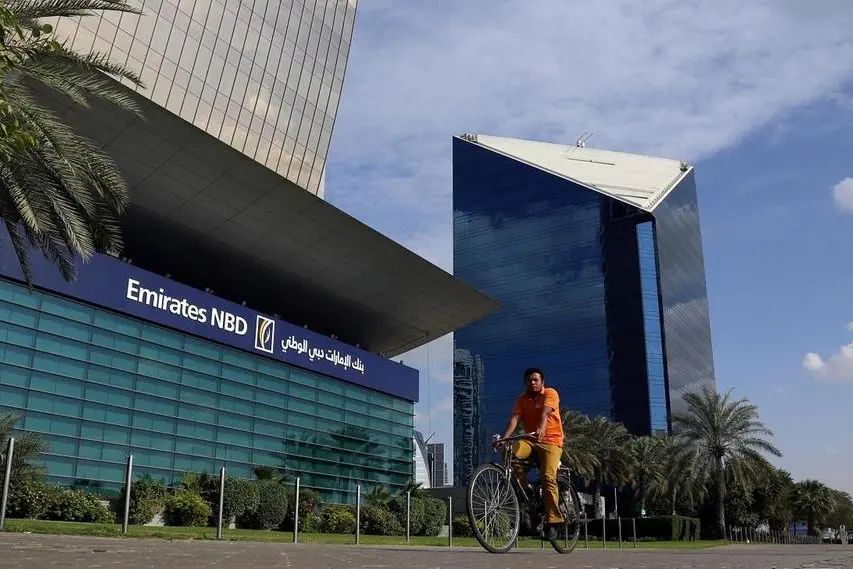PHOTO
DUBAI- Dubai's biggest bank Emirates NBD on Monday posted a 58% fall in second-quarter profit, having set aside over $1.1 billion so far this year to cover bad loans in anticipation that the impact of the coronavirus crisis will worsen.
Net profit slumped to 2 billion dirhams ($544.5 million) from 4.74 billion dirhams a year earlier, when it booked a gain of 2.1 billion dirhams from an asset sale.
Chief Financial Officer Patrick Sullivan said while the group was acting to manage costs to reflect softer economic activity, cost cuts would not entirely offset lower income.
Sources told Reuters in June that the bank had started a new round of job cuts, laying off hundreds of employees. One said the pandemic had accelerated a pre-planned process.
UAE Banks Federation Chairman Abdul Aziz al-Ghurair said customers have moved more towards digital services.
"This will require more investment from the banking sector to improve their digital experience... then they will have to drop some of their services which used to be available manually," al-Ghurair said on Monday.
UAE banks have been hit by tough government measures to curb the spread of coronavirus, which forced many businesses to temporarily shutter.
Many restrictions have eased since May, though Dubai, which does not have the oil wealth of Abu Dhabi, remains vulnerable as its economy is heavily dependent on tourism, transport and trade.
Emirates NBD said its impairment allowances had increased to 4.2 billion dirhams by June-end from 2.6 billion in the first quarter, with an annualised net cost of risk of 172 basis points.
Its non-performing loan ratio was 5.8% at the end of the second quarter, and its total assets were 694.3 billion dirhams, up 29% from a year ago.
The bank's underlying operating performance remained "good", and the "robust" balance sheet would help it navigate the challenges of low interest rates, low oil prices and the impact of the pandemic, Sullivan said.
($1 = 3.6728 UAE dirham)
(Reporting by Alexander Cornwell; Additional reporting by Hadeel Al Sayegh and Yousef Saba; Editing by Sherry Jacob-Phillips, Louise Heavens and Jan Harvey) ((Alexander.Cornwell@thomsonreuters.com))





















